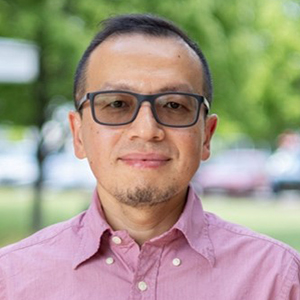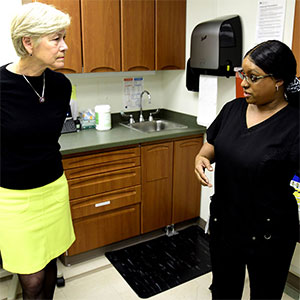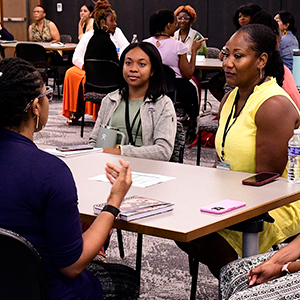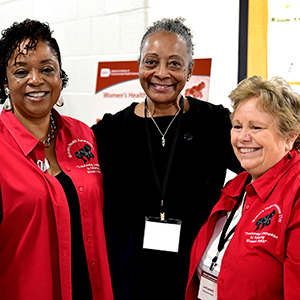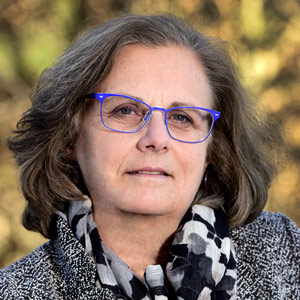The NIEHS Women’s Health Awareness (WHA) program welcomed 234 registrants to the Sept. 9 virtual presentation “Coping With Grief and Loss During COVID-19,” the latest webinar in its virtual series RealTalk With the Experts. Alesia Alexander, an author; clinician; and grief, loss, and inclusion consultant from Richmond, Virginia, shared her insights with attendees.
“This was a very important and timely behavioral health topic for the WHA community,” said Joan Packenham, Ph.D., director of the NIEHS Office of Human Research Compliance, which organized the event. “Many of our participants have gone through various forms of loss and grief during the past 18 months.”
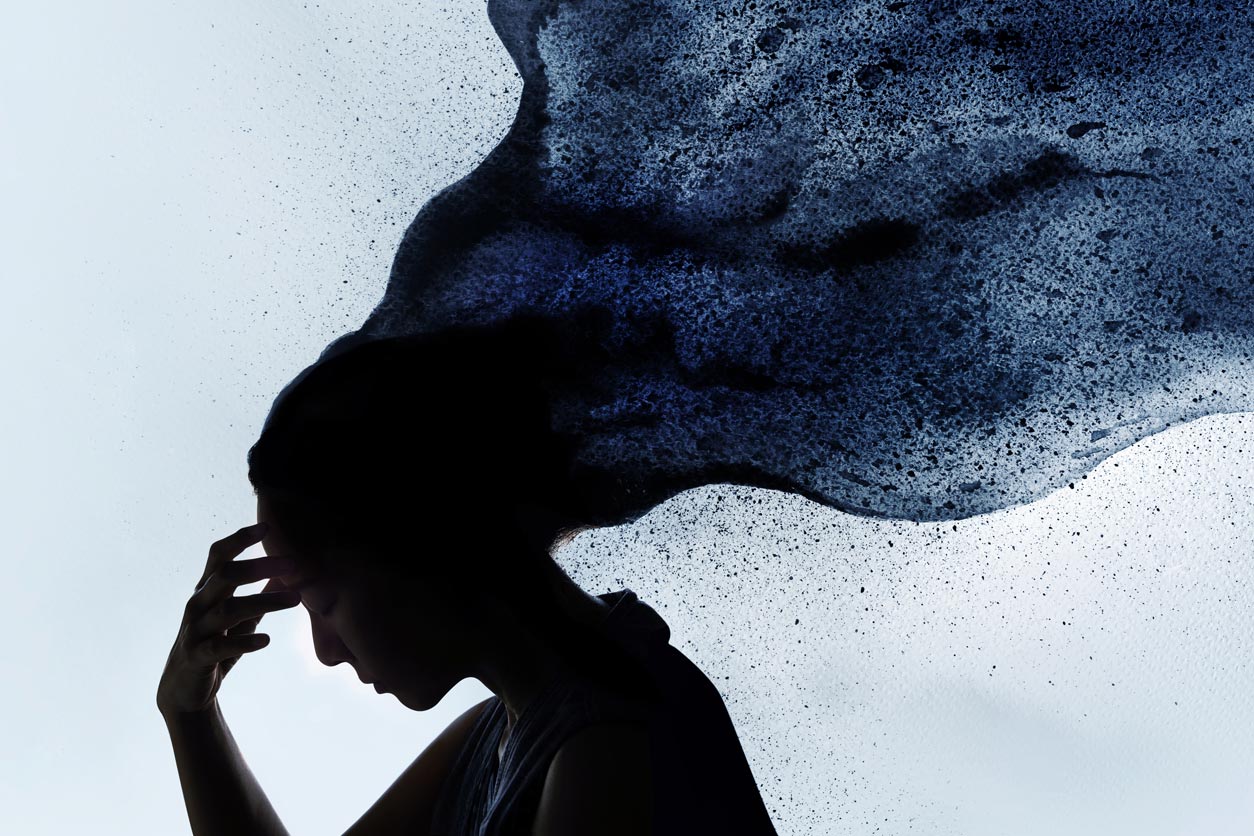 “Alexander’s presentation was phenomenal,” said Packenham. “She addressed the types of grief individuals have endured and helped us better understand how to cope with loss.” (Photo courtesy of Black Salmon / Shutterstock.com)
“Alexander’s presentation was phenomenal,” said Packenham. “She addressed the types of grief individuals have endured and helped us better understand how to cope with loss.” (Photo courtesy of Black Salmon / Shutterstock.com)Job loss, homelessness, fear of the unknown
“We have all been mourning for the last 18 months,” Alexander told attendees. “Our grief has connected us beyond the virus. We have had to reengage and realign, prioritize and pivot, regarding all the pandemic’s challenges.”
Approximately 120,000 children and teenagers have lost parental figures and other important family connections due to COVID-19, according to Alexander. “Orphanhood has more than doubled globally since the start of the pandemic,” she noted.
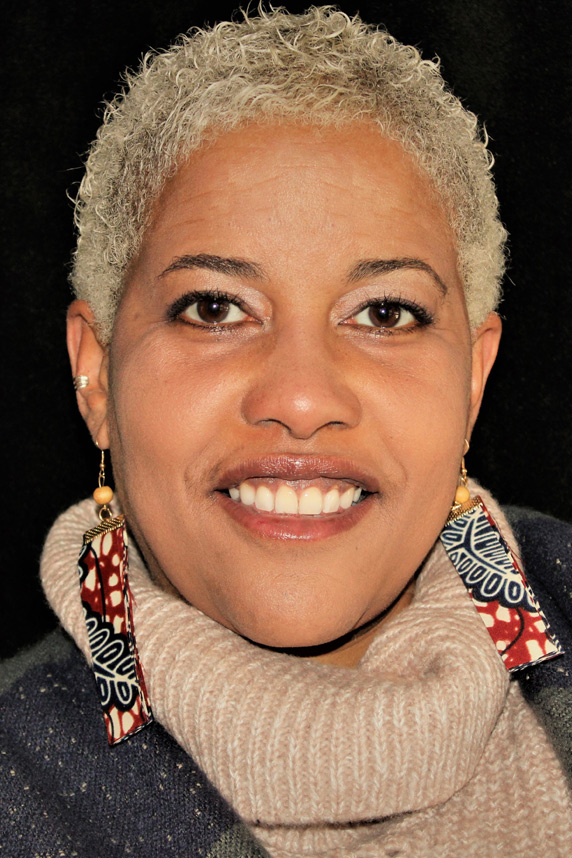 “By focusing on grief and looking at how COVID-19 is changing our relationships, we are practicing the highest form of prevention and intervention,” Alexander said. (Photo courtesy of Alesia Alexander)
“By focusing on grief and looking at how COVID-19 is changing our relationships, we are practicing the highest form of prevention and intervention,” Alexander said. (Photo courtesy of Alesia Alexander)Basic aspects of normal life have been disrupted through the loss of jobs and the instability or homelessness that has resulted, explained Alexander. And return to work and school has created anxiety, depression, and fear of the unknown.
Misinformation further complicates matters, with people not on the same page around the science behind COVID-19 and vaccines, according to Alexander. “There is a kind of emotional disenfranchisement among friends and family members,” she said.
Unresolved grief adds to emotional burden
COVID-19-related isolation has also changed the way we say goodbye to lost loved ones and friends, said Alexander. Keeping open a deceased person’s social media account so that people can still say goodbye and post memories is one potentially helpful approach.
“Technology can act as a kind of bridge to the future,” she told the audience.
One woman asked for advice on how healthcare workers can cope during the pandemic. “Over the last year, you absorb all your clients’ grief and sorrow,” she explained to Alexander. “The feeling of empathy has greatly diminished. Who heals the healer?”
“Get a good therapist and go to a support group,” Alexander replied. “Create support within your organization, where you all can come together.”
Not dealing with such issues risks adding another layer of unresolved grief to our psyches, Alexander said.
“Cumulative loss can bring up previous loss or trigger new behaviors from issues we haven't dealt with or problems we thought we had put behind us,” she added. “Unresolved grief can beget trauma.”
How to help children
Several attendees wanted to know how to help children deal with loss — and sometimes even anger — in ways they can understand.
“Tell them the truth,” Alexander said. “Many adults are afraid to lean in because they're worried that they won't have the answers.”
Alexander shared that after her ex husband passed away, her daughter needed answers she could not always provide.
“I fell apart,” Alexander said. “I engaged every cliché, and sometimes I've not been able to answer her questions. My training failed when my heart was broken.”
But that experience provided a valuable lesson.
“What the children are asking may not necessarily be what they actually want to know,” explained Alexander. “Usually, what they're really asking is whether there was love. Did you love dad, or mom, or whomever passed?”
Recordings of WHA RealTalk With the Experts events are available on the program's webinar resources page.
(John Yewell is a contract writer for the NIEHS Office of Communications and Public Liaison.)





